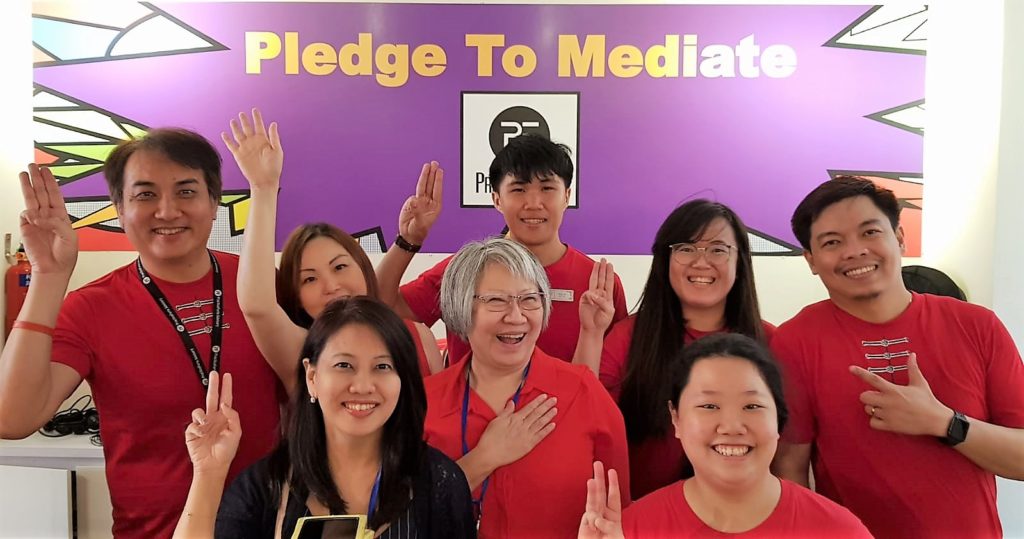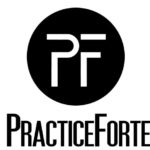Overview
PracticeForte believes in helping people help themselves.
Mediation is a way of resolving a dispute without going for a trial in court. It is known as an alternative dispute resolution (ADR) method.
Mediation is a flexible process in which a neutral mediator facilitates the parties’ settlement negotiations, to help them reach their own solution. The focus of mediation is on finding solutions that will meet the parties’ concerns. The mediator will not make a decision concerning who is at fault in the dispute. Investing in the hope that disputes have better chances of being resolved when a conducive forum is in place and matters can be framed for better communication and understanding, PracticeForte Pte Ltd has started and manages a Mediation Programme that wants to encourage people and corporations to prefer mediated solutions before court litigation.
As part of its community outreach to promote mediation, PracticeForte Pte Ltd brings affordable mediation services offered by experienced and dedicated mediators to its clients and to members of the interested public, especially in the areas of family/matrimonial and commercial disputes.
For enquiries on mediation, we welcome your calls at +65 6221-3009 or emails to enquiries@practiceforte.sg.
PracticeForte Pte Ltd‘s mediation programme and services are also accessible through organizations like AWARE, and we will be bringing our mediation efforts to more platforms in the near future so we can be nearer the need for them.
Why Mediate?
Mediation is a waste of time since we never agree on anything.
This may surprise you but mediation in Singapore has a high success rate – around 75% to 90% of mediations result in a settlement.
- Many disputes seem like they cannot be resolved because parties have opposing positions. However, mediation can help you both to bridge these gaps and find a workable solution.
- Think of the potential time and money you can save if you give it a try.
Discussing or proposing mediation is a sign of weakness.
On the contrary:
- Mediation is designed to facilitate constructive communication, to examine creative solutions to the problem and to save the disputants a considerable amount of time and money.
- It is NOT a process by which one side has to give in and it does not restrict the parties from the strengths of their case.
- Rather than signaling weakness, an offer to mediate should be seen only as an acknowledgment of the magnitude of the costs that lay ahead for both sides.
Agreeing to mediation might open the floodgates to more litigation.
- Unlike litigation, mediation is a confidential process and all information is kept private and confidential.
- Settlement agreements often contain a confidentiality provision prohibiting a discussion of the settlement terms.
- An early resolution to the dispute ends the parties need for witnesses and documents which in fact only leads to more people becoming aware of the allegations.
I don’t get along with the other party. Will mediation force me to be with them the whole day?
- No.
- If you and the other party don’t get along, the mediator will likely speak to you both in private sessions and individually.
- The only time you are likely to face the other party is at the start, when the mediator is explaining the process and at the end, when making your agreements.
Pledge to Mediate Event
PracticeForte and it’s Advisory jointly formulates a “Pledge to Mediate” among companies and organisations. We aim to promote best governance and speedy justice through mediation because we believe that being empowered to solve issues peacefully should be encouraged as it is an expression of civil maturity.
Not only is the use of formal mediation on the rise globally, many countries are also increasingly seeking practical, affordable and reliable options to resolve issues. The Singapore courts are also encouraging parties to voluntarily resolve disputes through alternative disputes resolution methods such as mediation. This is due to the growing awareness of time and financial savings as well as long-term relationship benefits obtainable from a mediated settlement. Solutions gained from using mediation can benefit the short and long-term wellbeing of companies as well as sustain important business relationships. The pledge is free and not legally binding.
Organisations stand to benefit from the following outcomes:
- Expression of Corporate Governance: A well-defined system of dispute resolution and crisis management demonstrate a competent internal management system.
- Goodwill generation: Resolution of disputes amicably through mediation improves mutual understanding transforming potential crisis into strengthened relationships and continued business opportunities.
- Creative solutions: Obtain value-added outcomes that go beyond financial resolves to meet their real commercial interests.
- Cost benefit – Mediating disputes can potentially avoid high costs of litigation.
We invite all organisations and companies in Singapore to become signatories of this Pledge. By doing so, the signatory makes a public, policy statement indicating its commitment to the promotion of amicable settlement of disputes.
The Pledge contains the following actions:
- Considering mediation as a first resort to resolve its disputes with other persons or organisations.
- Inserting a mediation clause in its agreements and forms, whenever appropriate.



